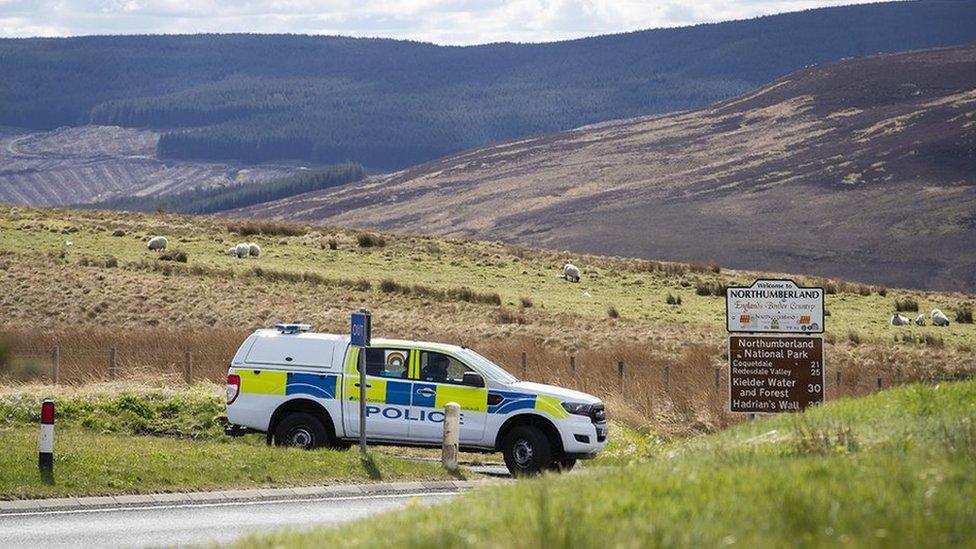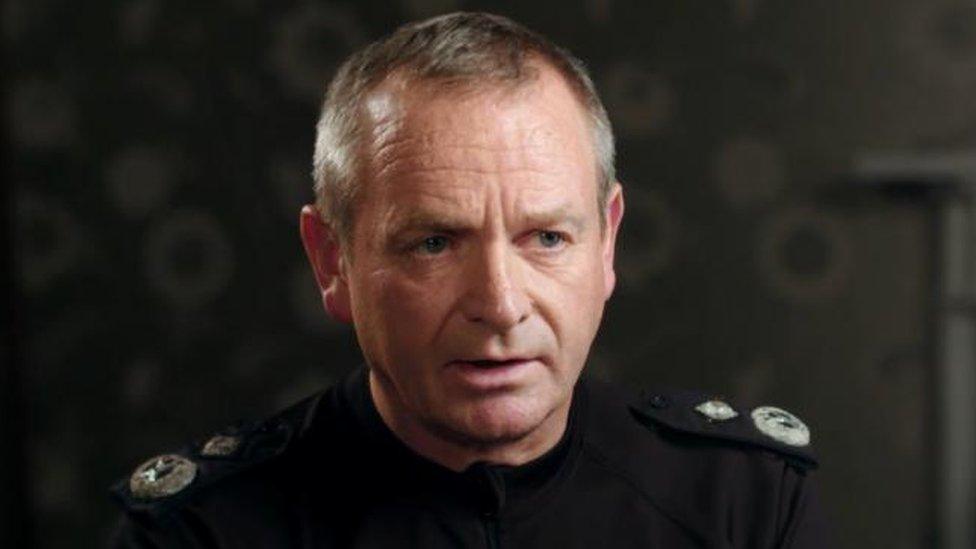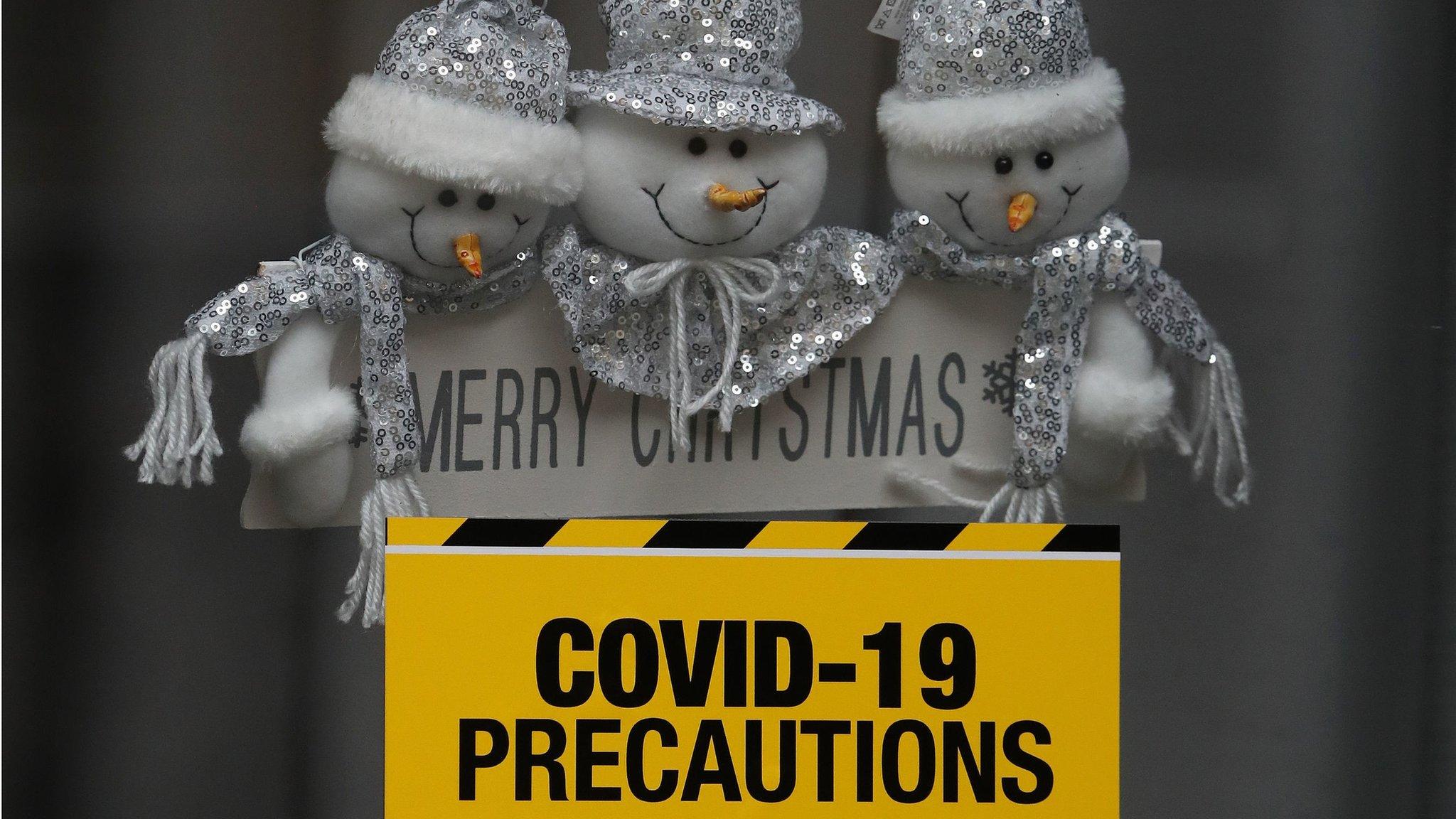Covid: Border police patrols to double after travel ban
- Published

Police patrols will be stepped up but road blocks are not envisaged
Police patrols on Scotland's borders are to be doubled but there are no plans for checkpoints or road blocks.
Police Scotland's chief constable said he expected roads to be quieter in the coming days and that most people would "do the right thing".
But Iain Livingstone ruled out setting up checkpoints, saying they were not "appropriate" or "proportionate".
The first minister announced on Saturday that cross-border travel would be banned for the festive period.
Nicola Sturgeon said tighter travel rules were essential, along with a number of extra measures, to prevent a new variant of Covid-19 spreading rapidly.
There are only a limited number of specific exemptions to the law.
In addition to the cross-border travel ban, the whole of Scotland will move into either level four or level three Covid restrictions from 26 December, meaning people are only allowed to make essential journeys outside their council area.
The chief constable said he had compassion for all those affected by "highly restrictive measures" but insisted they were "absolutely necessary" to save lives.
"Following the announcement by the first minister, there can be no doubt that, other than for the most essential journeys, people should not be travelling between Scotland and other parts of the UK," he said.
'Proportionate' policing

Chief Constable Iain Livingstone said policing of travel restrictions must be "proportionate"
Mr Livingstone said the increase in Covid alert levels from midnight on 26 December amounted to a "blanket ban" for mainland Scotland.
But he added: "I remain clear I do not consider it appropriate or proportionate for officers to establish check points or road blocks to simply enforce travel restrictions
"These restrictions are a preventative measure to halt the progress of Covid and Police Scotland will support this approach with a strong operational profile to deter those who would put others at risk.
"Today, I have authorised the doubling of our operational presence in the border areas of Scotland."
He said the force's experience throughout the pandemic was that the "overwhelming majority" of people had "demonstrated personal responsibility to do the right thing".
He added: "It is the consent of the public from which policing in Scotland draws its legitimacy. As our communities expect, where officers encounter wilful, persistent or flagrant breaches we will act decisively to enforce the law."
British Transport Police have also boosted the number of officers at stations across the UK's rail network.
Assistant Chief Constable Sean O'Callaghan said: "As has been the case throughout the pandemic, officers will be supporting rail staff through high-visibility patrols across England, Scotland and Wales, ensuring those on the network are safe.
"Our policing method remains the same - officers will engage with passengers and only use enforcement if absolutely necessary.
"Anyone planning a journey over the festive period is urged to consider whether travelling is essential and encouraged to stay at home as per latest Government advice."

VACCINE: When will Scots get it?
NUMBERS: Five key figures to watch out for
LOCKDOWN: Six months that changed our lives

- Published20 December 2020
